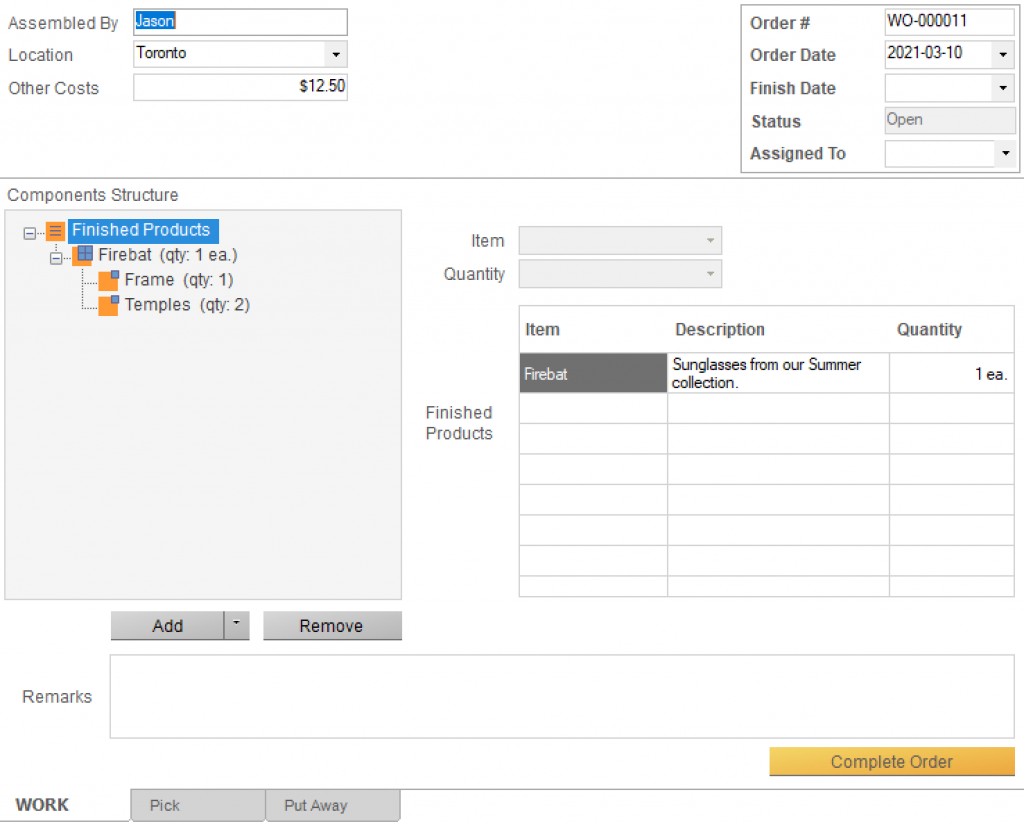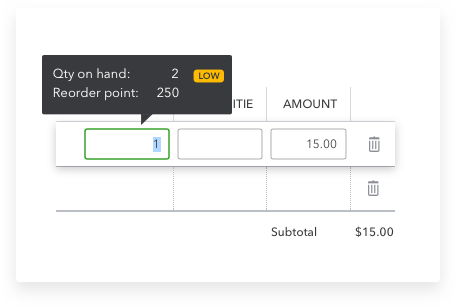
- Using quick books to keep inventory for small business software#
- Using quick books to keep inventory for small business plus#
It’s a double-entry option that doesn’t get too complex. Kashoo provides the small business bookkeeper with a simple, easy-to-use software.
Using quick books to keep inventory for small business software#
GoDaddy is not a double-entry accounting software its main focus is making detailed tasks easy and painless. GoDaddy offers a simple bookkeeping solution for online sellers and other self-employed small businesses. It’s a good match for businesses operating on a smaller budget.
Using quick books to keep inventory for small business plus#
The only free option on this list, Wave provides the functionality any bookkeeper would need plus features that are just nice to have. Sage 50cloud is versatile and flexible and offers multi-entity support.

Experienced bookkeepers will find Sage 50cloud a good candidate to meet their small business needs. Best bookkeeping software for small businesses that need multi-entity support. Even bookkeepers not using other Zoho offerings will find Zoho a respectable stand-alone option for bookkeeping needs. Already using other Zoho products? If so, ZohoBooks might be your best bet for its seamless integration with the Zoho ecosystem. Best bookkeeping software for mobile small businesses. It’s a simple option that does offer double-entry accounting and the multi-project support that many freelancing or contracting businesses might need. The small business bookkeeper looking particularly for strong invoicing and expense tracking should take a look at FreshBooks.


Best bookkeeping software for small contract-based businesses. Features bookkeepers might find appealing are the automations, hundreds of possible integrations, and expansive mobile functions. Small business bookkeepers on the go may want to consider Xero. Best bookkeeping software for small businesses that want integrations. There’s a QuickBooks option suitable for every set of needs, and most small business bookkeepers will find the ever-popular QBO meets-or exceeds-their needs effectively. QuickBooks was designed for bookkeepers initially but has grown into a robust accounting option available in a range of packages. Best overall bookkeeping software for small businesses. Here’s our list of the best bookkeeping software options for small businesses:

Therefore, finding the software that suits your needs and eases your bookkeeping burden is the first step. As a small business owner, you don’t want to spend countless hours completing your bookkeeping tasks you want to streamline that process as much as possible. Reporting is also important functionality, but it is important to balance the types of reports you need against the cost and robustness of the software you choose.Įase of use is always a consideration. In addition, you may need specific functionality, such as CRM, proposals and quotes, payroll, inventory management, multiple bank accounts, sales tax tracking, multiple payment methods, integrations, multi-entity support, and accountant access. For example, if you are based in an office, a desktop software might work well, but if you are on the go quite a lot, mobile access will be important. The additional features you need in a bookkeeping software will depend largely on the type of business you run. The basic functionality that most businesses will require include income and expense tracking and bank reconciliations. The recordkeeping part may seem daunting for many entrepreneurial small business owners who begin with a dream in mind, only to realize the nitty gritty of business ownership is, well, not fun. Not only are they responsible for interfacing with clients, making sure that projects are completed, and selling products, but also for keeping records about their businesses. Small business owners have a lot on their plates.


 0 kommentar(er)
0 kommentar(er)
